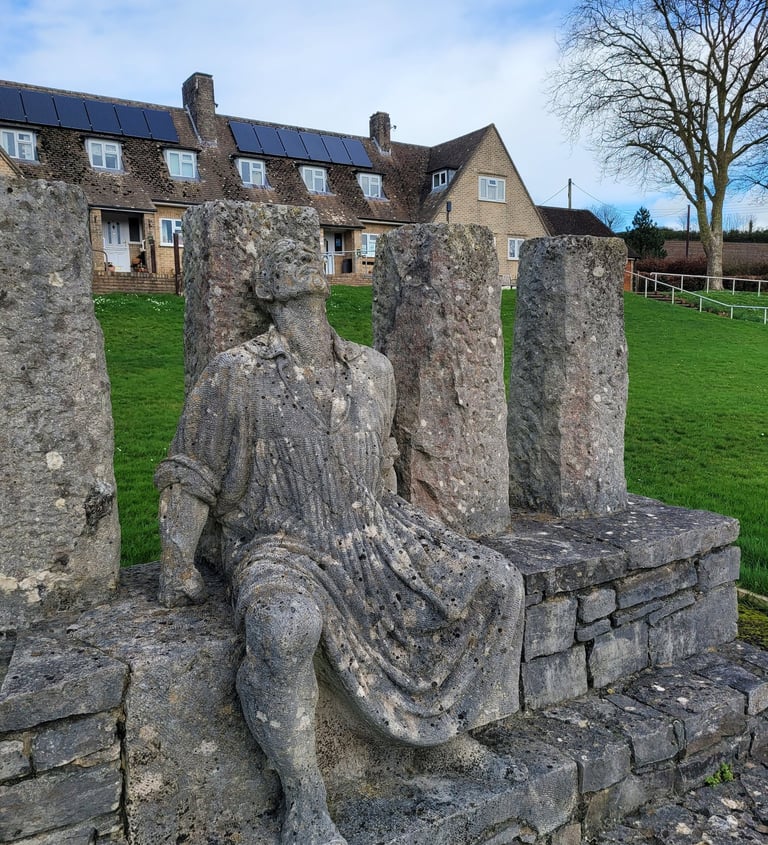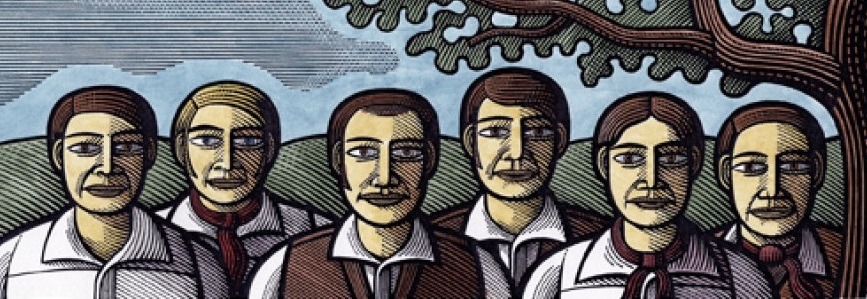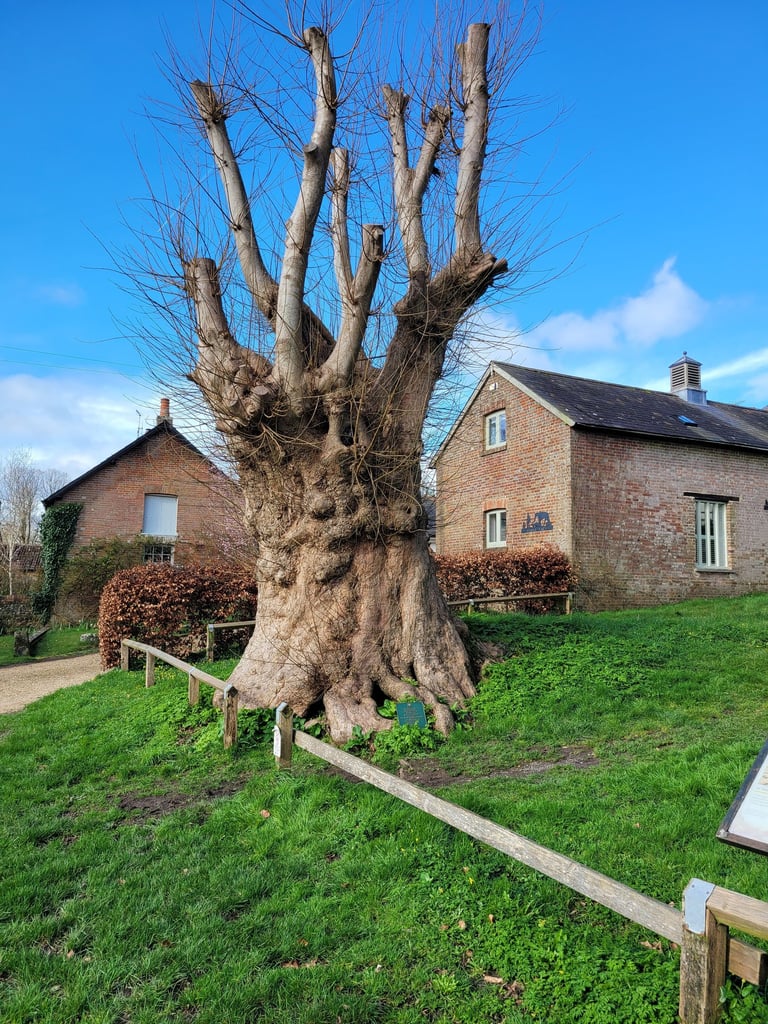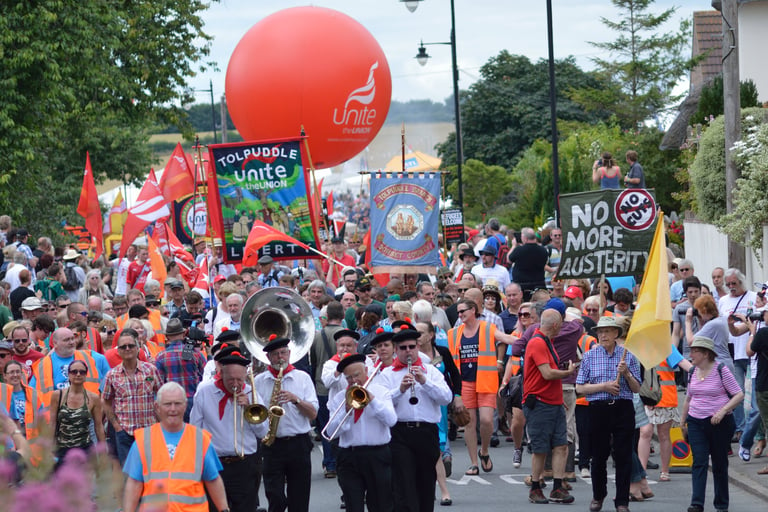The Tolpuddle Martyrs
DORSET, ENGLANDTOLPUDDLE
3/18/20244 min read


George Loveless awaiting transportation
When I told my children I was off to visit Tolpuddle at last, I was met with blank stares. They didn’t grow up in the UK, and the Tolpuddle Martyrs meant nothing to them. In fact, unions in general have not figured in their lives, nor in that of my American husband. For me, on the other hand, unions were part of my life as a child – the good, the bad, and, yes, strike action. Though I may not be impressed with the current strikes, the idea that the worker owns their work is fundamental to me.
Tolpuddle is not what I expected. A pretty, quiet village (except for the annual Tolpuddle Martyrs festival, I imagine), near the county seat of Dorchester, it seems an unlikely place where owners would choose to take a stand against unionisation, or where workers – and not even the stereotypical industrial workers at that, but farmhands – would stand up and assert their rights. Yet that is what happened nearly two centuries ago.


Source: www.tolpuddlemartyrs.org.uk
The Tolpuddle museum website tells the story in better detail, with rather nice woodcuts (at the time of writing), but I’ll summarise here. In the first part of the nineteenth century, agricultural labourers were living on the edge. Wages were low, less than the cost of living, and enclosures had limited the common land on which they grew and raised much-needed food and livestock. Bad harvests further wrecked lives, leading to uprisings across the south that were brutally put down.
In Tolpuddle, one man, George Loveless, felt there had to be a better way than rioting and persuaded his fellow workers to agree to form a union in order to seek fairer wages through negotiation. To cement their solidarity, they took an oath. However, the local squire, James Frampton, was determined to quash what he saw as dangerous upstarts threatening the ‘natural order’ of society. The problem (for him) was that trade unions were legal, so instead, he had them arrested on charges of seditious meetings and administering unlawful oaths. Loveless and five others were tried in what amounted to a kangaroo court at Dorchester and sentenced to seven years’ transportation.
The five were sent to Australia; Loveless, whose sentence had been delayed due to ill health, was shortly after transported to Tasmania. Transported convicts were carried in dreadful conditions in the prison hulks. If they survived the journey, the next ordeal was life as a virtual slave labourer, and though some employers were kindly, others treated them with incredible cruelty.


The sycamore tree where the martyrs met
However, the martyrs were not abandoned. Word spread fast, and their fellow trades unionists rallied to their cause. A massive demonstration took place near London and petitions with a total of over 800,000 signatures flooded Whitehall. Within 10 months, conditional pardons had been given, but it was another year before the demanded full pardons came. Loveless arrived home first, and most quietly (the King was dying at the time); the others followed to public fanfare. Though funds were raised to buy them farms, five, including Loveless, eventually emigrated to Canada due to continual pressure from landowners around them. There, they generally found the success and respect denied them in their native country.
But back to the present. I’m tempted to muse on the gentrification of villages such as Tolpuddle and the irony that conditions improved to the extent that locals often cannot afford to live in the places where their ancestors toiled. But life is not static, and from what I could see, Tolpuddle has a community very much engaged in both their history and the present-day life of their village.
In what used to be workers’ cottages is a small, free museum, with a surprisingly well-stocked shop (shout out for their selection from the Radical Tea-Towel company!) and you can take a short guided walk through town to follow the scenes of the story. There’s a lovely little playground and park down by the river and a pub that also serves coffee and food (though we went on to Dorchester to eat). Everyone (and literally, their dog) who we met was friendly, one lady even giving us an impromptu tour of the chapel which was officially closed for renovation. During a rare few hours of sunshine on what had been a dreary week, we slipped back in time and saw the world around us with new eyes, gaining respect for Dorset man George Loveless and his compatriots, who fought for a better way that we might have a better life.


Tolpuddle martyrs' festival. Source: Wikimedia Commons
